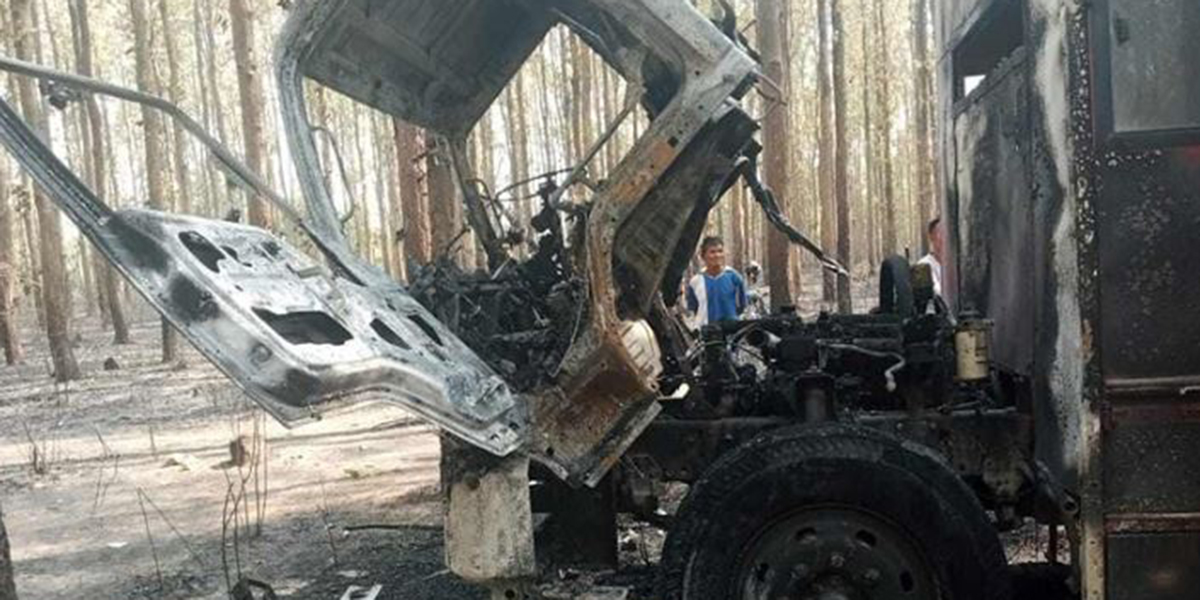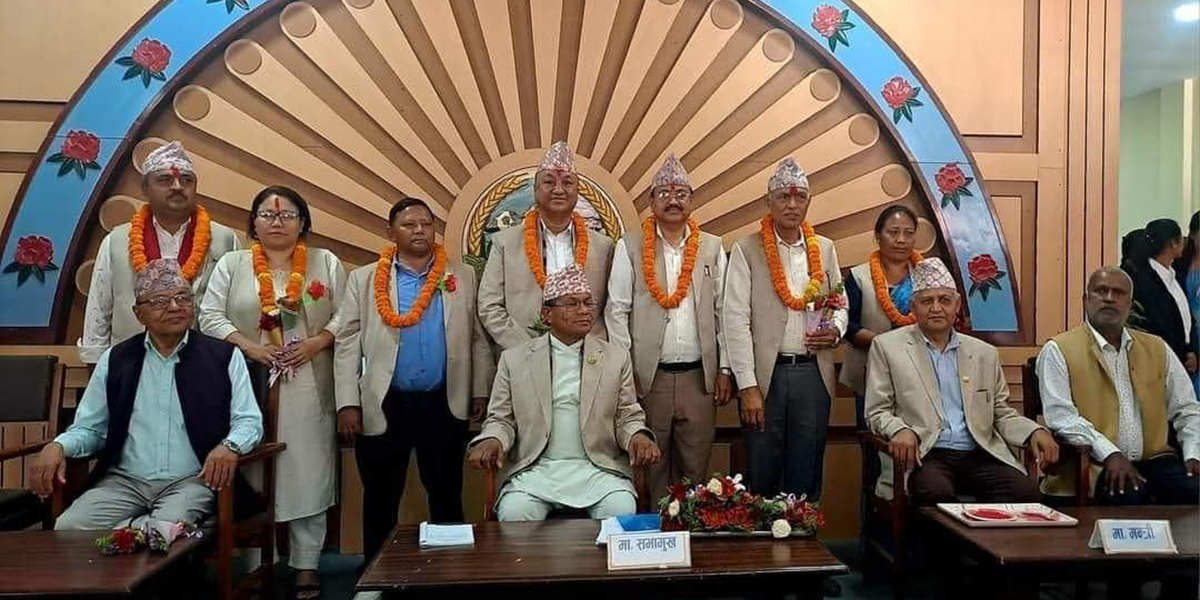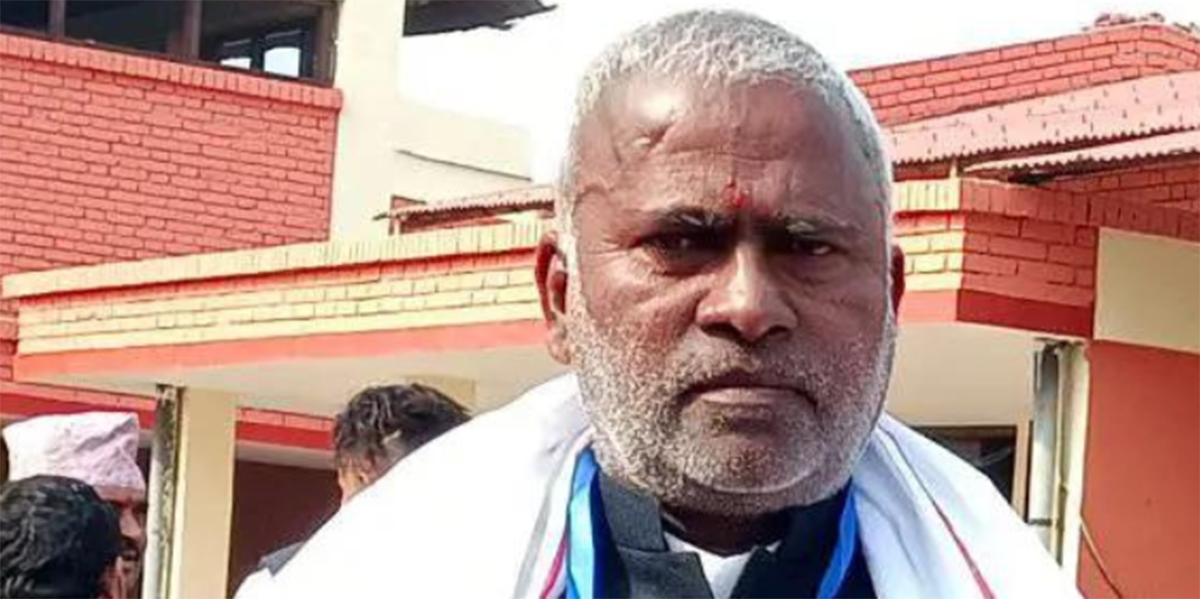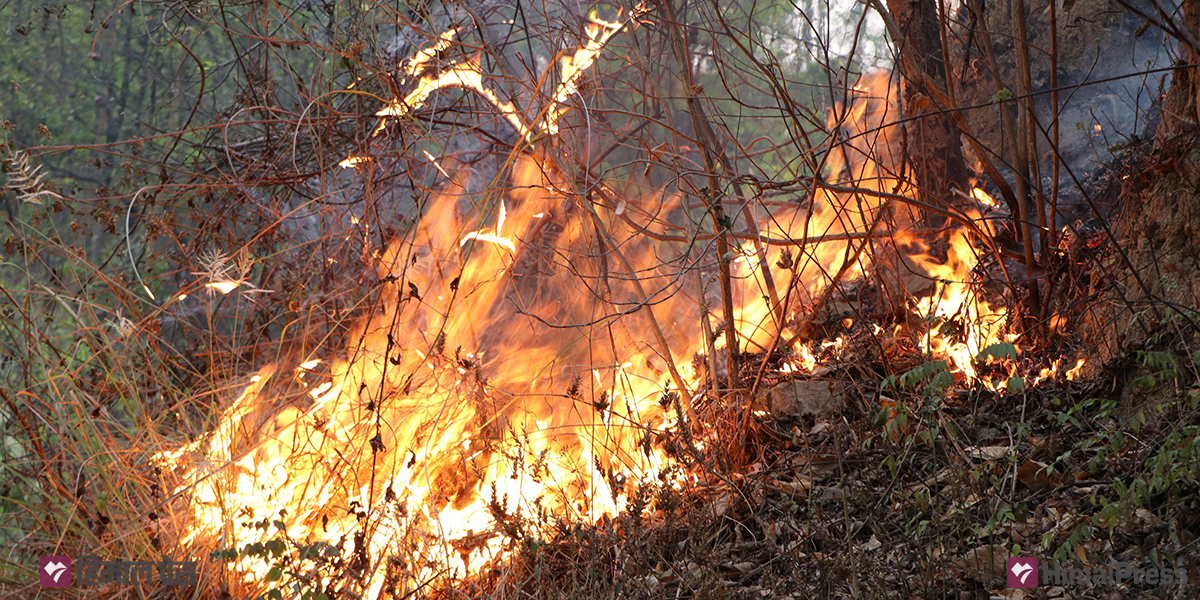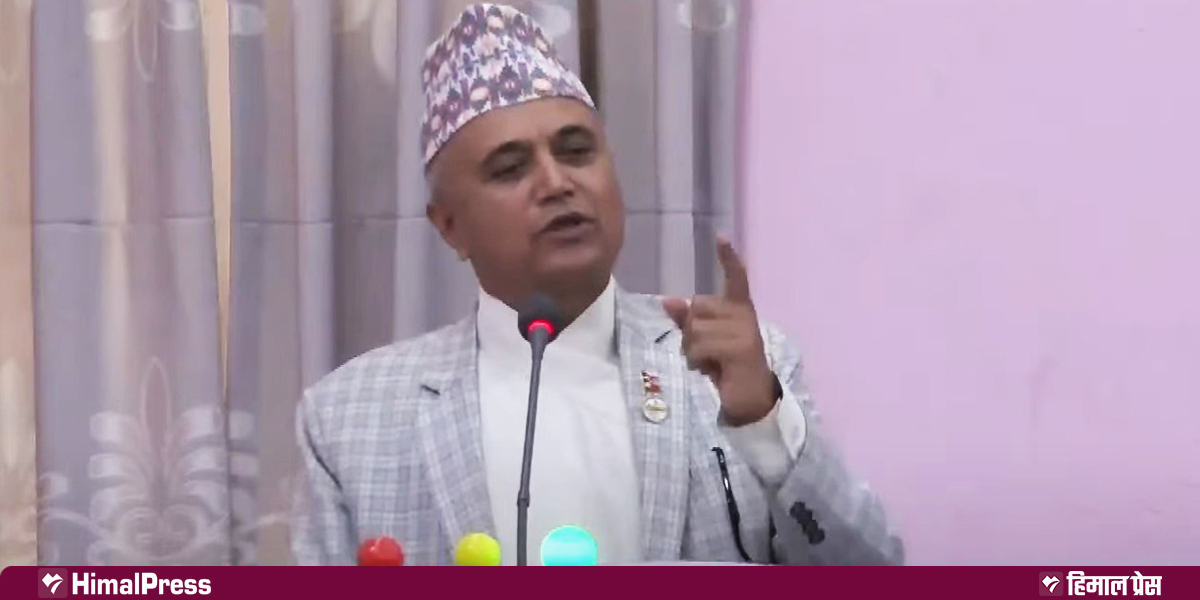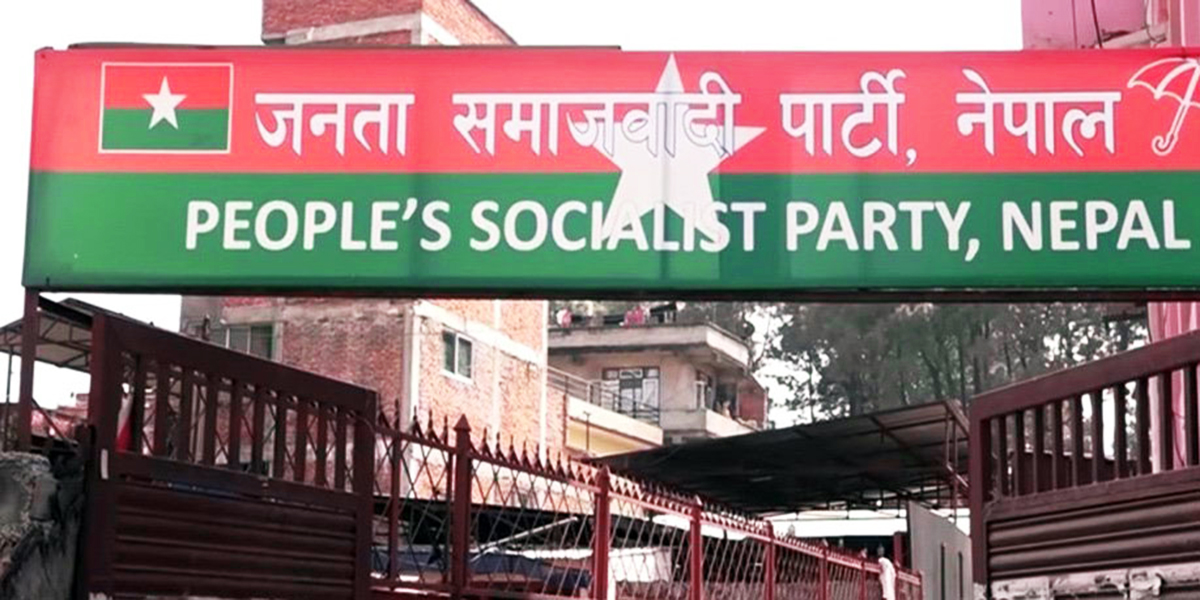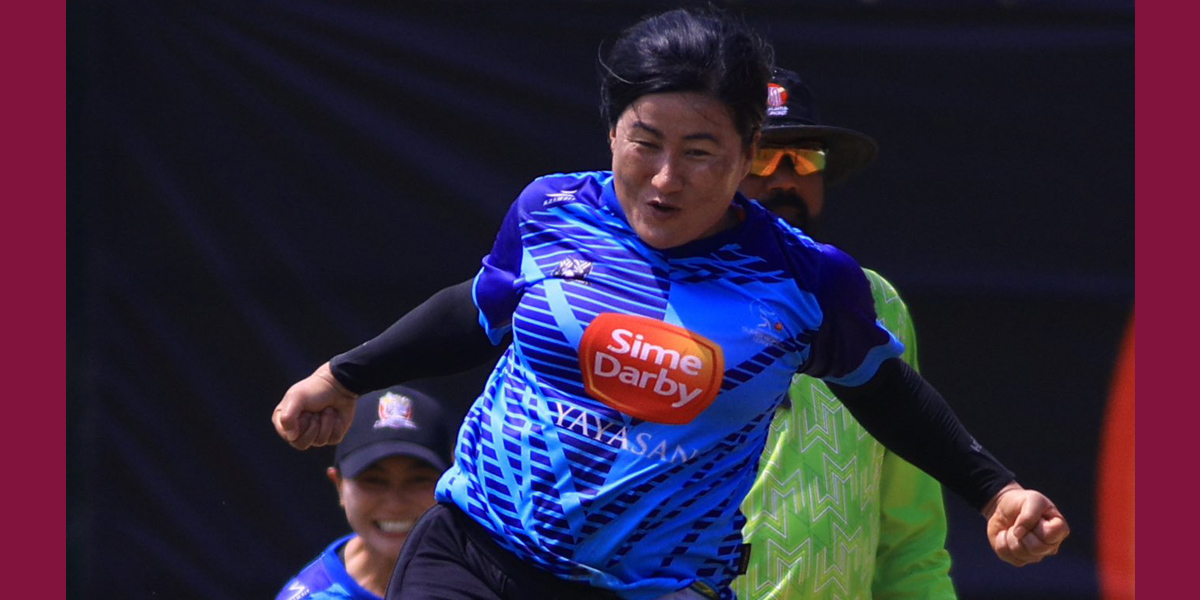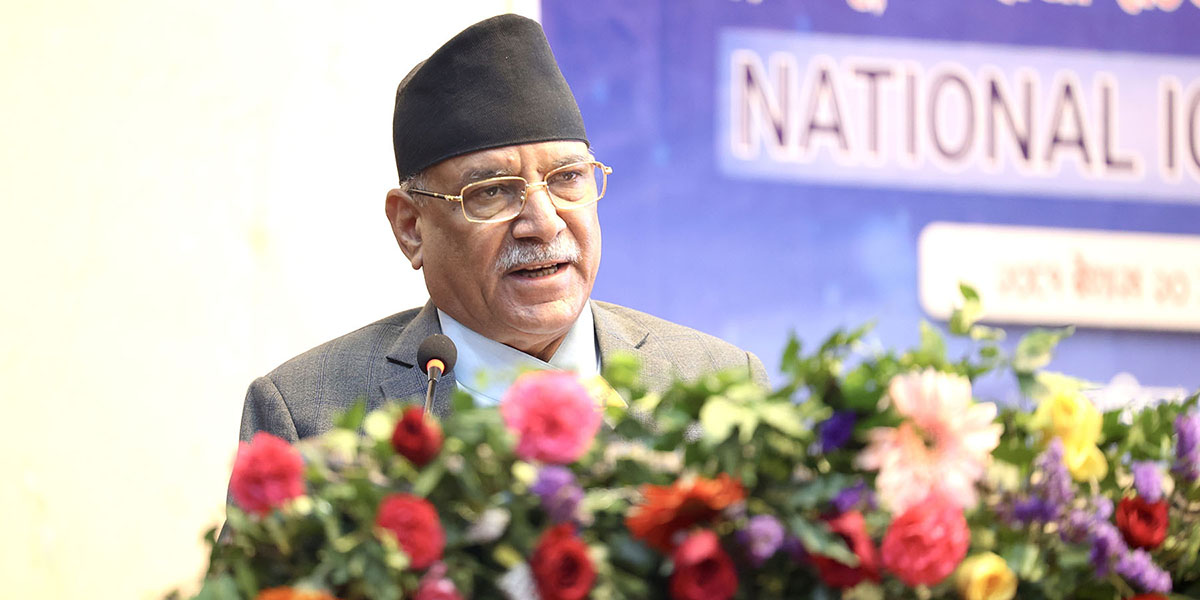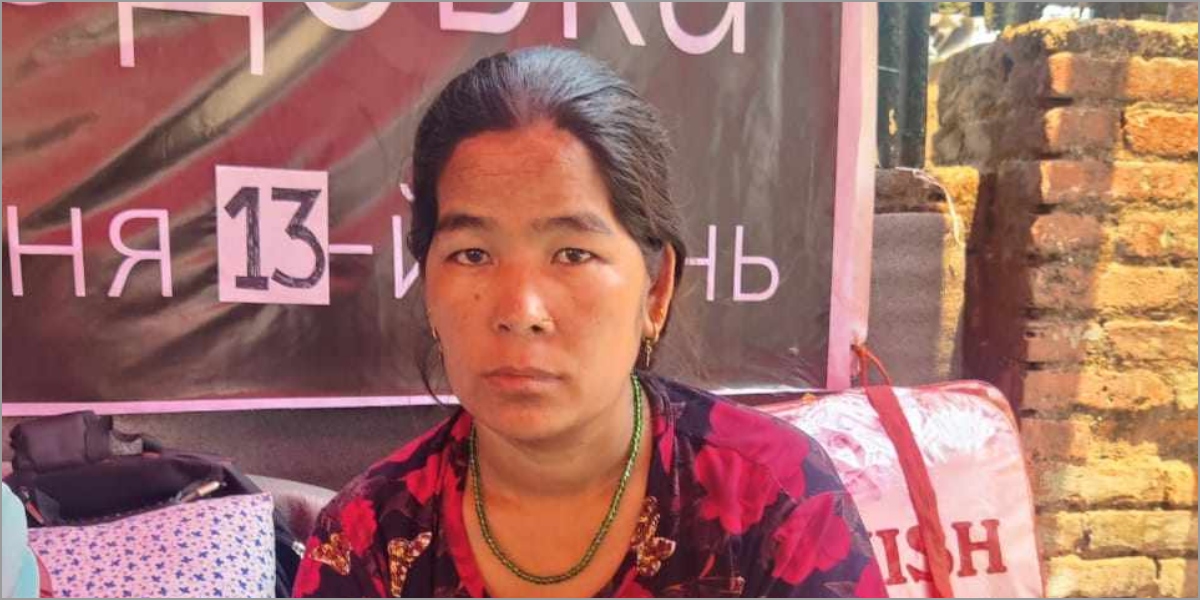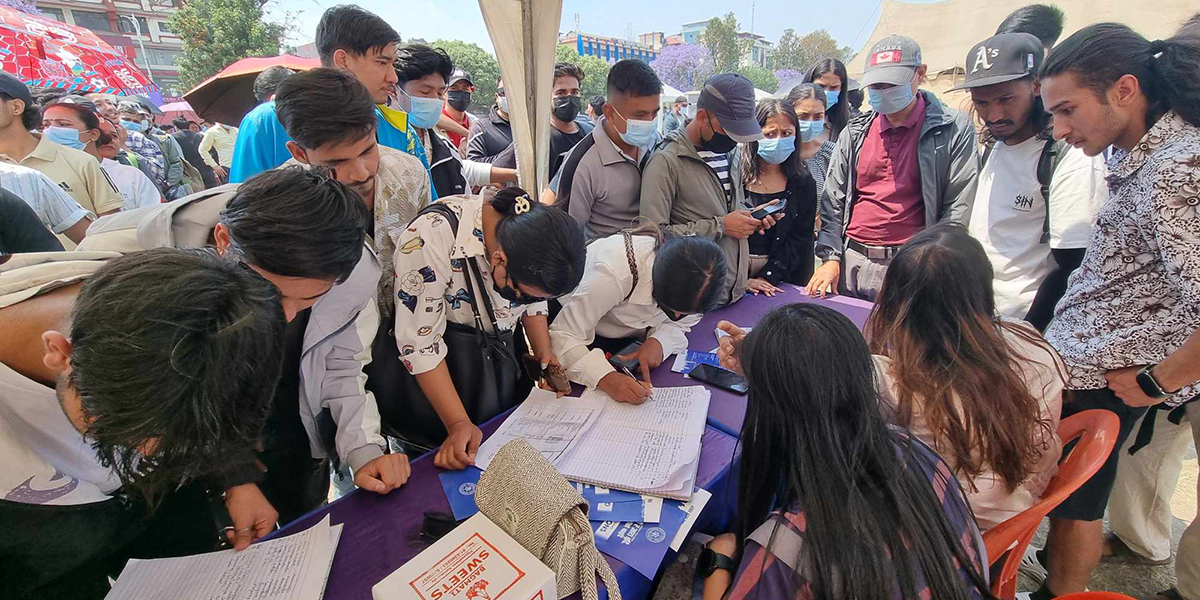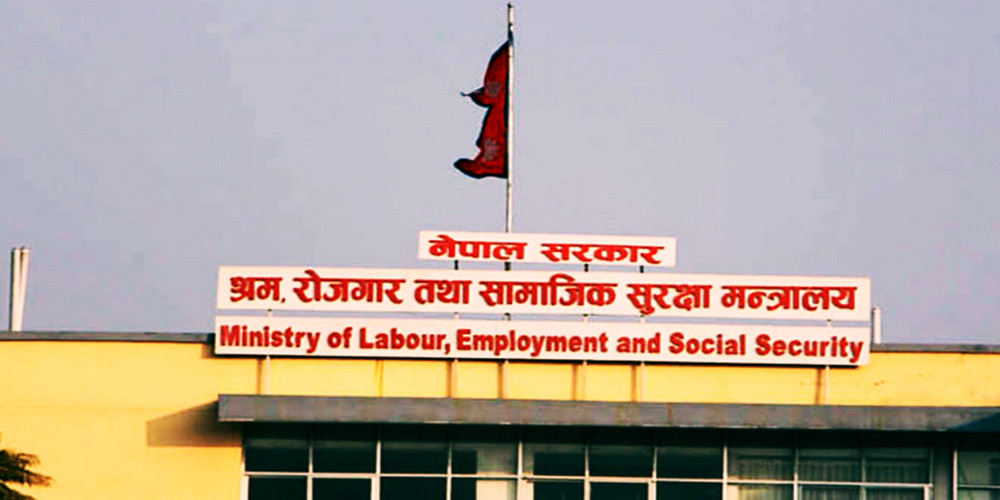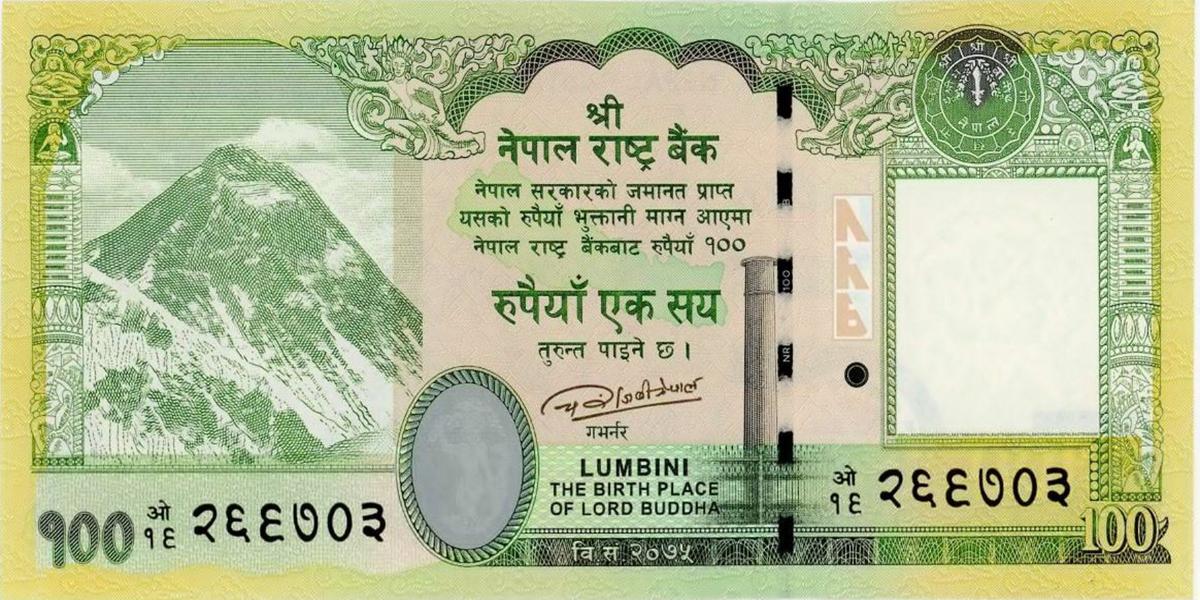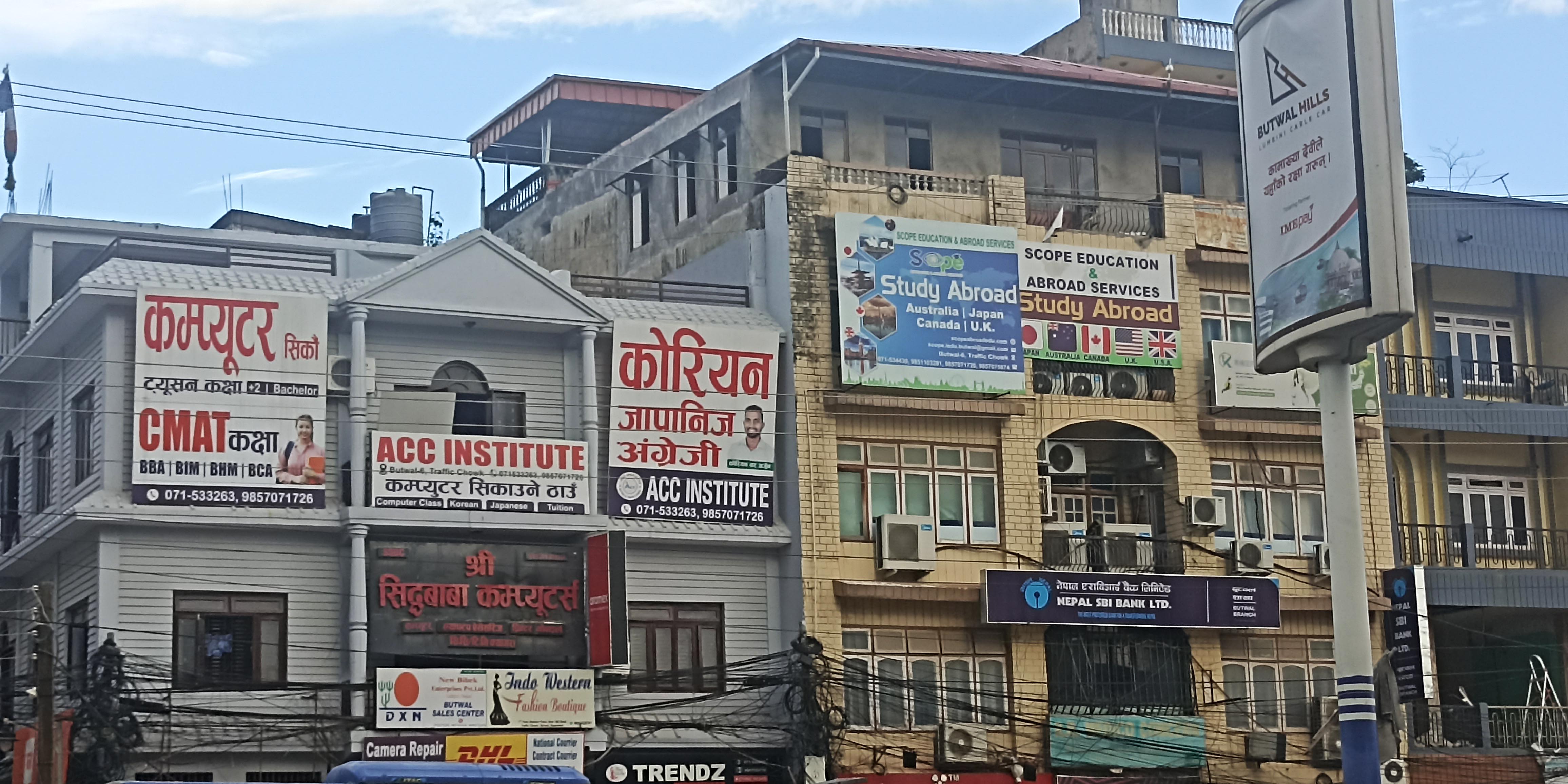
LUMBINI: Apil Basyal (19) from Gangoliya in Tilottama-17 of Rupandehi, passed the School Education Examination (SEE) two years ago with a GPA of 3.9. He joined St Joseph College to study management. After achieving good marks in Grade 11, Apil is preparing to go to Australia for further studies once his Grade 12 results are published.
Apil, who is currently preparing for the IELTS test, decided to study in Australia because he believes there is no future in studying in Nepal. “You cannot find a job according to your abilities after studying in Nepal,” he explained. “I am going to Australia to receive a better education rather than face uncertainty after spending four years on a graduation degree here.”
Apil chose Australia for further studies based on his family’s advice. His father, Pashupati Basyal, has been involved in the automobile business for a long time. Basyal said he decided to send his son to Australia for higher education because the chances of finding a good job in Nepal are low. “The study here is good, but the question arises about what to do after graduation. So, I decided to send him to Australia, respecting his wish,” Pashupati said.
Amrit Parajuli (39) from Thumka in Bihadi-3 of Parbat is making final preparations to travel to South Korea. He was employed in Dubai from 2011 to 2019. Four years ago, Amrit returned to Nepal with the determination to do something in his homeland, but now he is leaving again for foreign employment. “I struggled in Nepal for four years. I opened a hotel in Kathmandu, but it failed due to COVID. I started livestock farming in my hometown, but couldn’t sustain the business. Then I thought of starting a shop in Butwal, but that plan didn’t materialize,” Parajuli said. “After all my efforts failed, I decided to prepare for foreign employment again.”
The number of young people leaving the country for employment and education purposes has been increasing every year. Educational consultancies in Butwal, Bhairahawa, Dang, and Nepalganj, which offer IELTS preparation courses, are always crowded. Since very few students want to stay in Nepal after Grade 12 examinations, campuses offering Bachelor’s programs are experiencing a low turnout of students. Butwal Multiple Campus, one of the leading educational institutions in Lumbini Province, has seen a decline in the number of students each year.
Last year, the constituent campus of Tribhuvan University admitted 3,500 students into various Bachelor’s programs. “This number has decreased to around 2,500 this year,” said Campus Chief Dr. Khumananda Neupane. “While the admission rate is declining, the dropout rate is increasing. Around 30% of students discontinue their studies by the time they reach the 4th semester.”
In the past, the college would admit up to 10,000 new students in a year. Although the opening of campuses in rural areas is one reason for the decline in student numbers, the main reason is the increasing trend of students leaving for foreign countries for higher studies.
Lumbini Commerce Campus has also witnessed a drop in admission rates for Bachelor’s programs. “Students no longer see a future in Nepal after completing Grade 12 examinations. We are heading for a disaster if reforms are not made in our education system and political situation,” said Dr. Tara Prasad Upadhyaya, Campus Chief of Lumbini Commerce Campus.
While campuses in urban areas are seeing a decline in student numbers, those in rural areas are on the verge of closure due to a lack of students. Campuses in Palpa, Gulmi, Dang, Rukum, Rolpa, Pyuthan, Banke, and Baridya have observed a drop in the number of students enrolling in their Bachelor’s programs.
Upadhyaya also mentioned that the dropout rate in Bachelor’s programs is 25-30%. Lumbini Commerce Campus now enrolls around 3,500 new students annually, down from around 5,000 before they adopted the semester system. “Approximately 15% of students obtain a no objection certificate (NOC) from us for their studies abroad,” Dr. Upadhaya added.
While campuses in urban areas are seeing a decline in student numbers, those in rural areas are on the verge of closure due to a lack of students. Campuses in Palpa, Gulmi, Dang, Rukum, Rolpa, Pyuthan, Banke, and Baridya have observed a drop in the number of students enrolling in their Bachelor’s programs.
Growing fascination for studying abroad
These days, not only students but also parents visit consultancies in major cities of the province to inquire about study opportunities abroad. From ordinary individuals to provincial ministers, parliamentarians, high-level government employees, teachers, businessmen, and more, everyone wants to send their children abroad after Grade 12. “Until a few years ago, only students used to visit the consultancy,” says Dev Bahadur Kunwar, owner of Study World Consultancy. “Now, parents are also coming in large numbers.”
Kunwar, who is also the president of the Rupandehi Chapter of the Nepal Educational Consultancy Association, says that people are now interested in studying IELTS, visa processes, etc., to go abroad. “Many people visit consultancies to inquire about countries like Australia, Canada, the United States of America, and Japan,” he says. “The number of students heading to India, Bangladesh, and China is also increasing.”
Some consultancies report a significant increase in the number of students studying abroad in the past three years. “Young people in Nepal do not see a future in Nepal. The main question for most young people today is what to do after their studies,” said Roshan Kandel, the owner of Expert Education Consultancy.
According to Kandel, students want to go abroad due to a lack of employment opportunities, political instability, and the lack of quality education in the country. “Those who leave the country on student visas rarely return,” he added.
The number of people seeking employment in countries like South Korea and Japan is also growing exponentially. Institutes offering Korean and Japanese language classes are witnessing a large influx of students.


